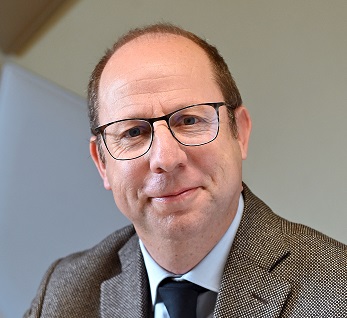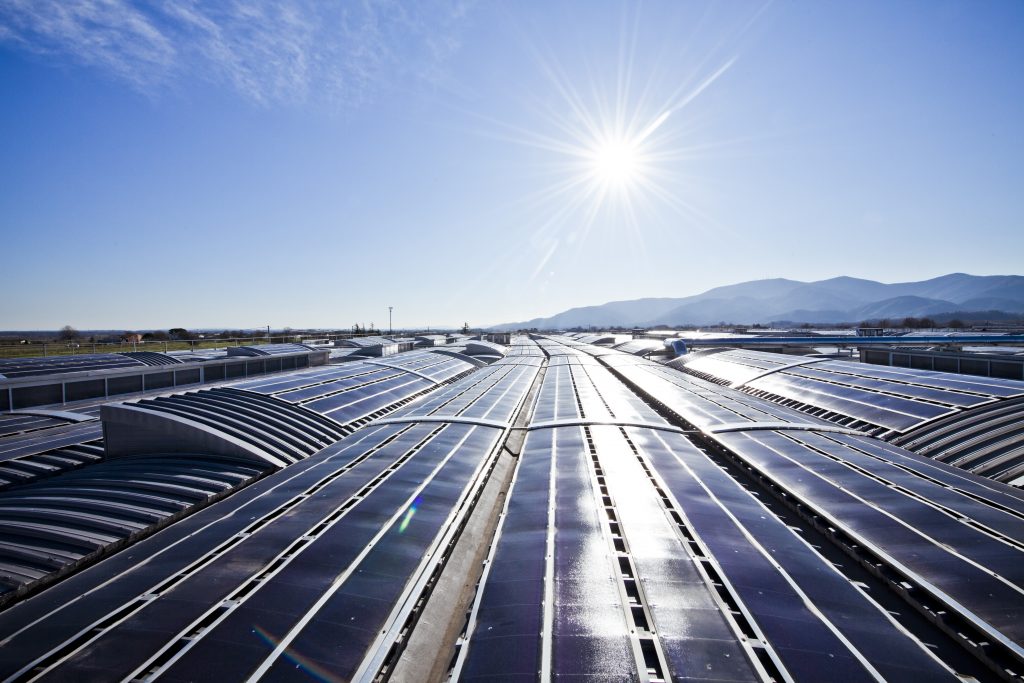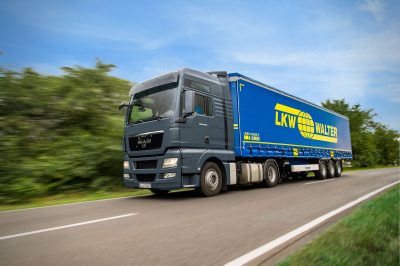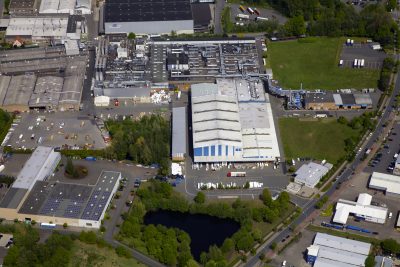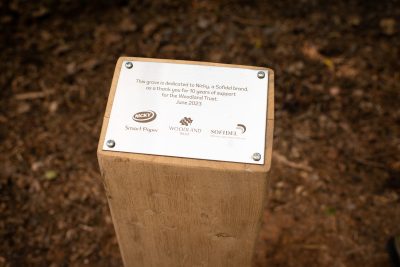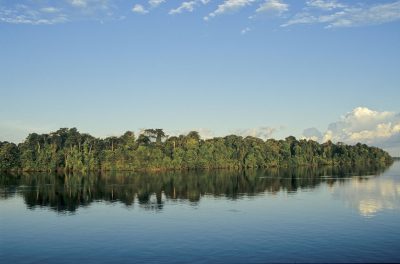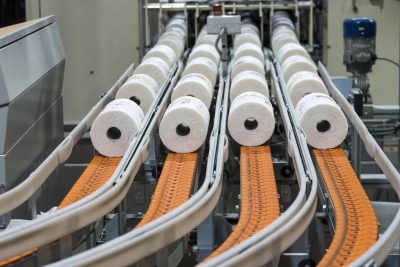Riccardo Balducci, Sofidel Energy and Environment Director, shares his insights with Future on science-backed sustainable action and how a CDP ‘A’ rating brings the company closer to achieving its goal of a 40% reduction in carbon emissions by 2030
As the man responsible for Sofidel’s energy and environment strategy since 2010, Riccardo Balducci is taking leadership on ensuring the entire business is fit for the future by seeking growth opportunities as well as measuring and understanding the risks. Formerly an environmental manager of the company, he perhaps knows more than most how sustainability must sit at the heart of the agenda for a business that relies on the availability of natural resources.
Even through periods of rapid change and the challenges of the pandemic, the global energy crisis, dramatically increasing prices, and geo-political tensions, the business is committed to fighting climate change. In fact, Balducci points out that the pandemic, along with the ongoing cost crisis, has been an eye-opener for Sofidel and many other companies because it allowed them to further understand sustainability in a very practical sense. He believes that factors such as energy consumption, climate change, socio-economic change and the geopolitical environment have dramatically changed the playing field when it comes to sustainability.
“Sustainability means we must compromise as little as possible to reduce our carbon footprint and protect our workers and their families. Although our products [toilet paper, kitchen towels, napkins, handkerchiefs and tissues] are disposable, they are also essential in our lives – a factor made all the clearer during the pandemic. So, sustainable business means trying to protect ourselves from risk and achieve economic growth to maintain a business like Sofidel that employs almost 7,000 people,” he says.
Balducci says Sofidel’s forward-thinking policies established many years ago have helped the business mitigate the economic storm currently hitting the marketplace. This includes establishing a long-term agreement for energy purchasing, which gives Sofidel some stability in terms of costs and alleviates the market risks from issues such as the CO2 crisis.
Why sustainability is embedded in Sofidel’s strategic mindset
The business has embarked on some important steps to raise its profile and translate a sustainable mindset into positive action. Because of its own reliance on raw materials, Sofidel is committed to helping coordinate the fight against deforestation and working to reduce the impact of its activities on natural capital such as forests.
According to Balducci this includes a forensic selection process when reviewing potential new suppliers. All raw materials used sourced by Sofidel have a forest chain of custody certification. These certifications are awarded by the FSC® (Forest Stewardship Council) and PEFCTM (Programme for the Endorsement of Forest Certification) and both of these programmes ensure that the procedures used to obtain raw materials from forests are sustainable. “We display these logos on our products, so customers are aware they come from well managed forest sources. It’s a big part of our sustainability activities,” says Balducci.
“The second step is reducing energy consumption. We’ve invested heavily in software as well as next generation tissue paper machines. This investment amounts to around €700m and means we continue to produce premium quality tissue as well as reduce power and natural gas consumption. We see the results – less consumption, less carbon emissions, increased production efficiency.”
The Group’s 2030 emission reduction goal equal to -40% (of those emissions directly produced by the Sofidel business) per tonne of paper by 2030 compared to the base year 2018, have been approved by the Science Based Targets initiative (SBTi) as consistent with the reduction standards required by the 2015 Paris Agreement to limit global warming to well below 2°C. The business is successfully introducing alternative fuels and long-term renewable power contracts across Europe. Not only does this positively impact efforts to build a more sustainable future for people and the planet, but it also helps combat rising energy costs.
“We’ve invested heavily in software as well as next generation tissue paper machines. This investment amounts to around €700m and means we continue to produce premium quality tissue as well as reduce power and natural gas consumption. We see the results – less consumption, less carbon emissions, increased production efficiency”
Riccardo Balducci
Innovation, emissions and renewables
Sofidel is taking leadership on renewables with a 10-year agreement with Meva Energy for the construction of a renewable bio-syngas generation plant at the Kisa site in Sweden. The new plant will supply renewable energy, replacing fossil fuel sources within two years. As well as benefiting from additional green energy, the agreement enables the Group to reduce CO2 emissions by a further 8,500 tons compared to the current carbon footprint generated by the consumption of LPG. Meva Energy will run the plant, which will have a generation capacity of at least 4.2 MW. Balducci adds: “In the first quarter of 2023 paper production will be fuelled by approximately a third of green energy.”
Another highlight is the new onshore wind farm – Alcamo II in Sicily, Italy – where the green electricity produced has been contracted to Sofidel until 2030 as part of a Power Purchase Agreement (PPA). The contract also enabled the German firm RWE Renewables to build the wind farm, which consists of four Goldwind turbines, without having to rely on state subsidies. In turn, Sofidel comes a great deal closer to sustaining its green energy transition.
Sustainability at scale
Chief executive officer, Luigi Lazzareschi is clear about Sofidel’s sustainability goals of the future. “At Sofidel, we believe in building an inclusive and sustainable future and in our commitment to minimize our impacts on natural capital and encourage the transition to a low-carbon economy we are increasingly focusing on renewable energy,” he says. The business is making great progress in countries such as Sweden and Italy. Now, negotiations are taking place in other markets such as Spain, the UK and the US, where there are different challenges to embed low-carbon solutions in place of natural gas.
There are many new innovations and opportunities that could lead to more sustainable ways of getting energy so, according to Balducci, “It is important that they have colleagues working in different countries, who all understand our environmental sustainability goals and can ensure that they remain updated on new innovations.” Balducci points out that Sofidel is a global company with a set of global targets, but it remains important that they “act locally” to ensure they can access the opportunities different countries may have to offer. In the UK, that could be biomass boilers, in France it could be working with farmers on waste treatment plants.
This is where the strong Group network comes in to play. Every business in every market is in constant communication about opportunities and challenges, to ensure the global Sofidel approach works at a local level.
Committed to fighting climate change
When Sofidel obtained the maximum score – an “A” rating – from the Carbon Discloure Project (CDP) for its commitment to the fight against climate change, it was an important achievement in many ways. CDP is a non-profit organisation that supports investors, companies, cities, states and regions in managing their environmental impact and provides information on environmental performance to more than 590 investors with assets worth more than $110trn.
The A grade reflects that the company has achieved good results in carbon management but can also govern itself and is able to manage the risks and opportunities associated with reducing carbon emissions and climate change. The CDP questionnaire is updated every year in order to make sure companies remain engaged in furthering sustainable processes.
“The way to keep the CDP “A” rating is to progress on our performance,” says Balducci. “To introduce more sophisticated metrics and methodologies for measuring improvements. To manage risks and focus on opportunities. We encourage as many people in the company as possible to spread awareness and work together.” As Riccardo says, reducing greenhouse gas emissions is not at the expense of economic growth. In fact, it boosts performance and competitiveness, bolsters corporate governance and resilience, raises awareness of risk and improves investor confidence.
“It’s possible to run an economically successful business and meet ambitious climate protection goals,” Riccardo adds. He is also confident that, in the future most of the energy Sofidel uses will come from renewable sources, while the scale of its carbon footprint will be dramatically reduced.
Key takeaways – sustainable business growth
Sofidel’s emissions reduction targets have been approved by the Science Based Targets initiative (SBTi) as consistent with levels required to meet the goals of the Paris Agreement.
Sofidel has obtained the maximum score – an “A” rating – from the Carbon Disclosure Project (CDP) for its commitment to the fight against climate change.
A Power Purchase Agreement with RWE means green electricity produced by the onshore wind farm Alcamo II in Sicily will be purchased by Sofidel on a long-term basis.
Sofidel has produced 30,000 tons of paper (that’s nearly 150m rolls of Rotoloni Regina toilet paper) using clean energy from the Alcamo II onshore wind farm in Sicily, Italy.
A 10 year-agreement with Meva Energy for the construction of a renewable bio-syngas generation plant means Sofidel will replace fossil fuel sources at its Sweden site in two years.
